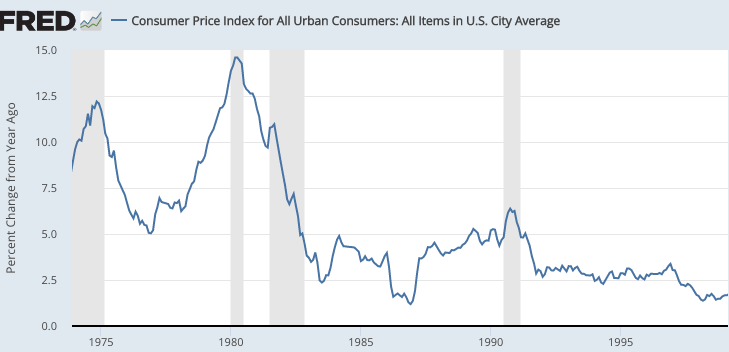"The Economist has an article on what the 1980s can teach us about solving the inflation problem:
So the experience of the 1980s may become instructive. And once you dig into the history, the decade holds three tough lessons for today’s policymakers. First, inflation can take a long time to come down. Second, defeating inflation requires the participation not just of central bankers, but other policymakers too. And third, it will come with huge trade-offs. The question is whether today’s policymakers can navigate these challenges.
The first two points are incorrect, at least for the US. Inflation was brought down relatively quickly after Paul Volcker finally adopted a tight money policy in mid-1981. The 12-month inflation rate fell from 14.3% in June 1981 to 3.8% in December 1982. And this was done with no help from fiscal policy, as the newly elected President Reagan slashed taxes and boosted military spending. Some Keynesian economists (wrongly) suggested that this fiscal stimulus would lead to high inflation. (There was a modest payroll tax increase in 1983, but by that time the inflation problem had already been solved.)
The Economist is right about the trade-offs. When inflation has become entrenched, bringing it down to much lower levels can cause a recession. It’s too soon to know what will happen in 2023 (our current inflation problem is less severe than in 1981), but the risk of recession is clearly higher than during a normal year.
PS. You can argue that Reagan’s tax cuts made the disinflation less painful than otherwise, but they did not cause the disinflation."

No comments:
Post a Comment
Note: Only a member of this blog may post a comment.